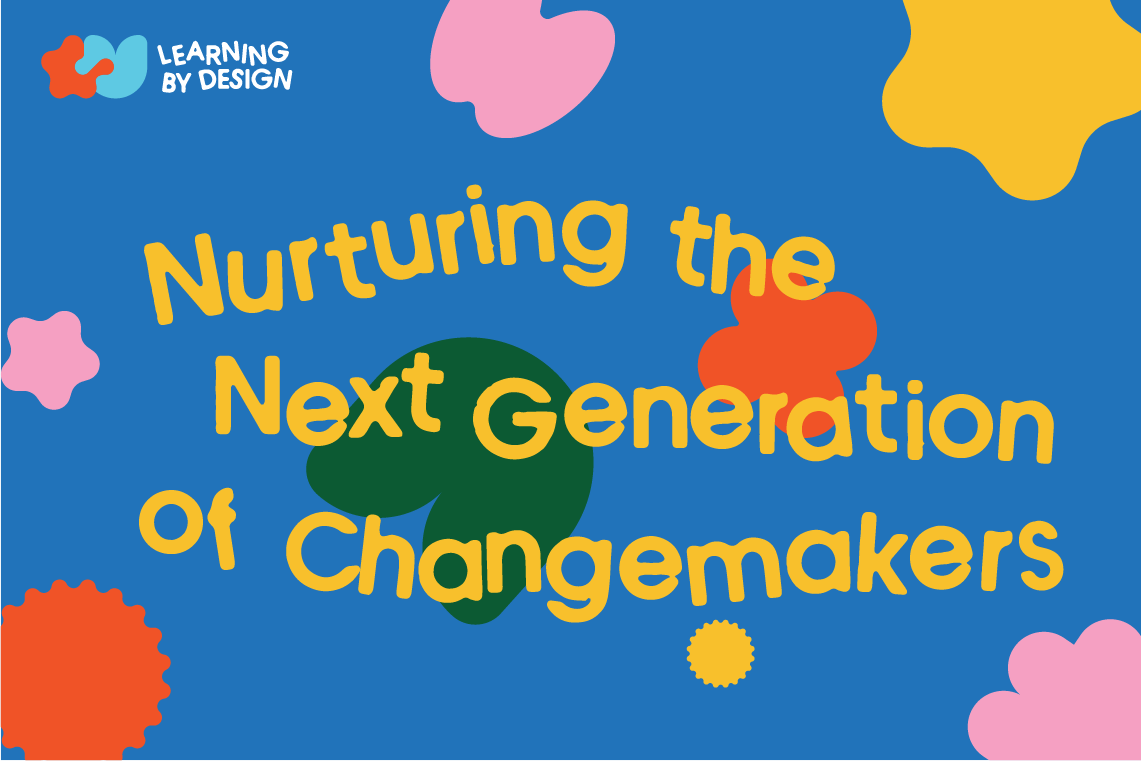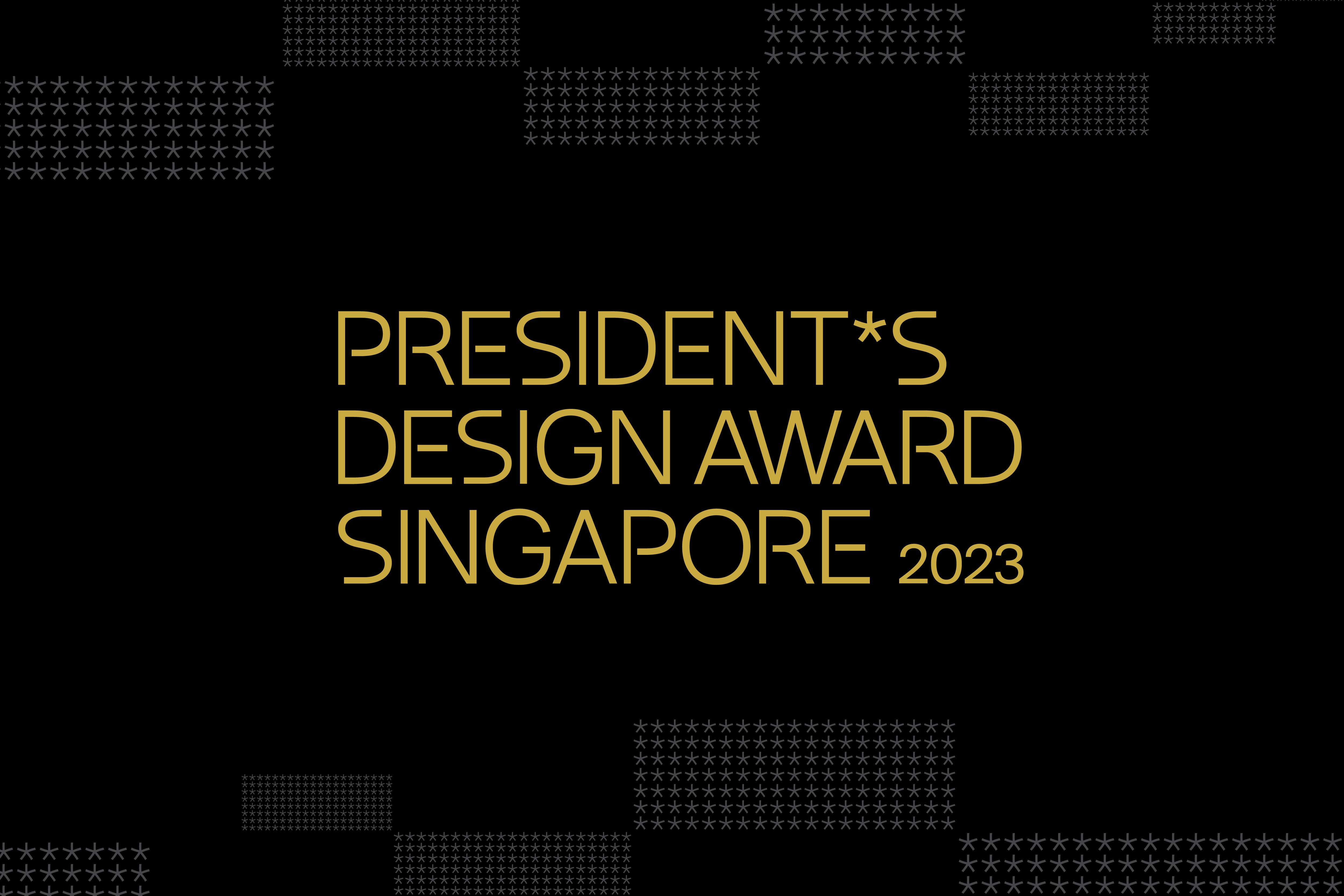Alya Tay is on a Lifelong Journey of Discovery Through Design
Learning how design helps to uncover the needs of people and even bring them together inspired the DesignSingapore Scholar to pursue a career in user experience design – and to continuously grow as an individual.
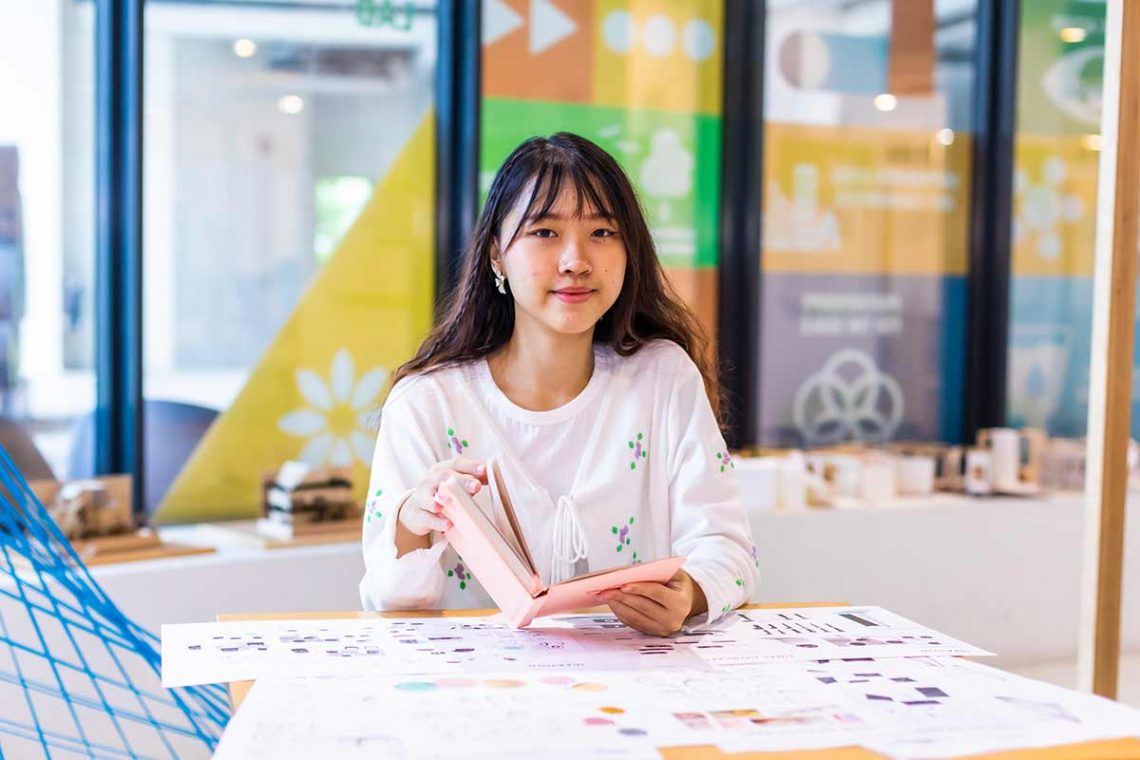
Growing up, Alya Tay enjoyed fashioning clothes from scrap cloth and even designing her own jewellery. Her love for crafting led her to study art in secondary school where she first learnt about graphic design. However, it was after a visit to the Design & Technology workshop in school that Tay realised her love for turning ideas into reality.
“I liked seeing all these sketches and ideas come to life be it as physical products or on a digital screen,” Tay recalls. “I had an idea from the workshop that design is about creating a nice-looking product at the end of the day… but when I went to design school, it was completely different.”
At Ngee Ann Polytechnic’s Diploma in Design course, Tay learnt to first conduct research to gather data and insights from potential users to create prototype designs. These were then used to gather feedback to improve her creations before it was finalised as a product.
“My initial focus was that I want to make things look nice, like adding fancy texts and sparkles. But I was very, very naïve,” Tay says.

Somehow, I had missed out how design also involved other things like research and the iterative process.
— Alya Tay
Despite the difference in expectations, she fell in love with design even more. In fact, research has become her favourite part of the design process.
“You can research almost anything, and you don’t know what you will find. You may have assumptions, but you may realise they are completely wrong,” she says. “There’s always something new to discover!”
Connecting people by design
Besides discovering a more holistic understanding of the profession, Tay also learnt from her school projects how design can facilitate human connections. An early example was a class assignment to create her own brand that led the teenager to reflect on her struggles with puberty. After research interviews with female friends confirmed she was not alone in facing these issues, Tay developed Sprouts! to empower young girls to confidently navigate the emotional and physical discomforts of growing up. She designed a speculative app as part of the brand that teaches users about female health and also serves as a platform to connect them with others experiencing similar issues.
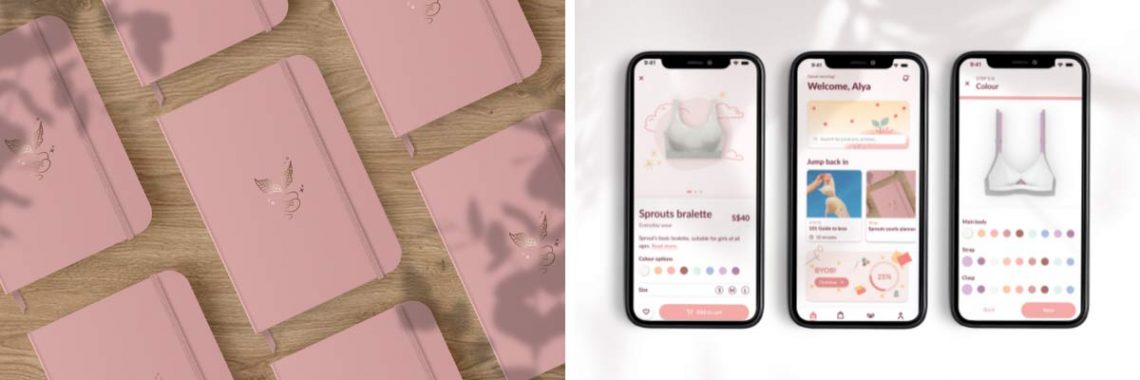

I realised design is a multidisciplinary tool that gives us this opportunity to get into intimate spaces. By that I mean, getting closer to users – what they feel, their issues – and with these you can identify what problems to solve and what opportunities to improve on.
— Alya Tay
She has applied this lesson to other school projects. Buddy Bot, for instance, is a robot that cleans desks and provides companionship through conversations. Her graduation project in 2023, Naavi, is a device that helps children navigate the outdoors independently while allowing parents to track their movements and communicate with them.
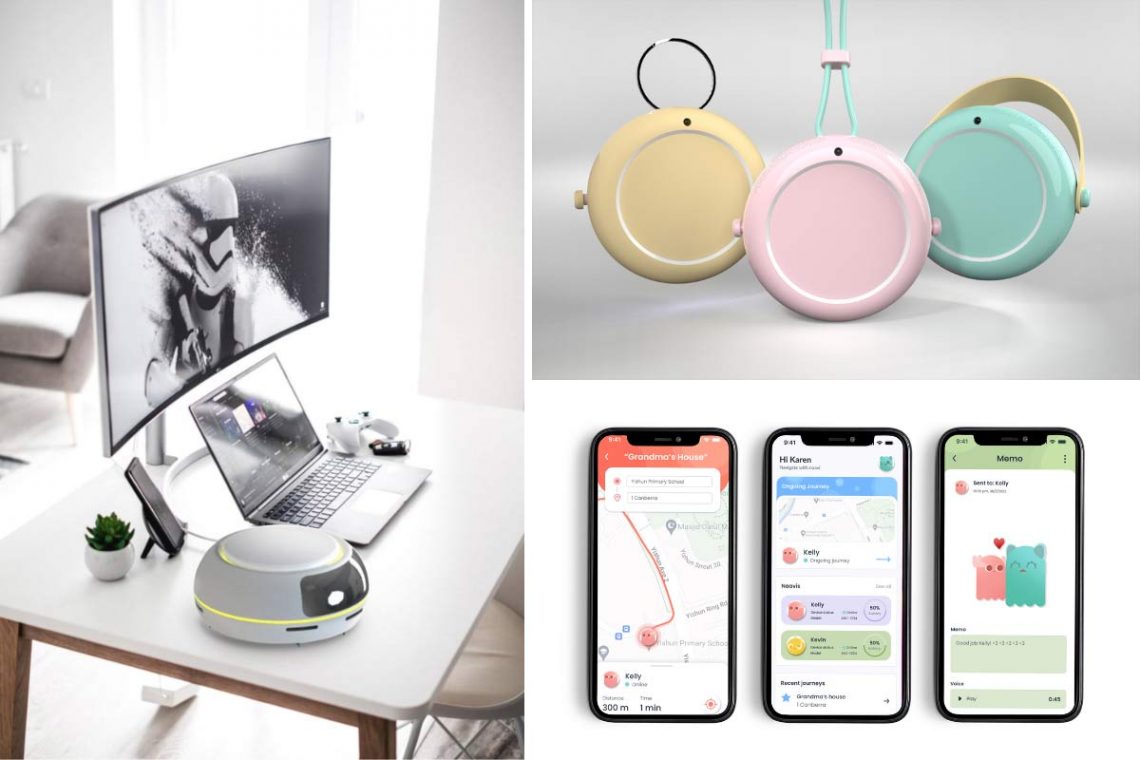
Perhaps her most successful attempt in connecting people by design thus far is DEspatch, a digital newsletter she started with friends from school during her second year in polytechnic. The students from the product innovation as well as architecture courses got together to write and design this publication that comes out every semester after realising they knew little of what the staff and their peers in the School of Design & Environment were up to, particularly during the pandemic.
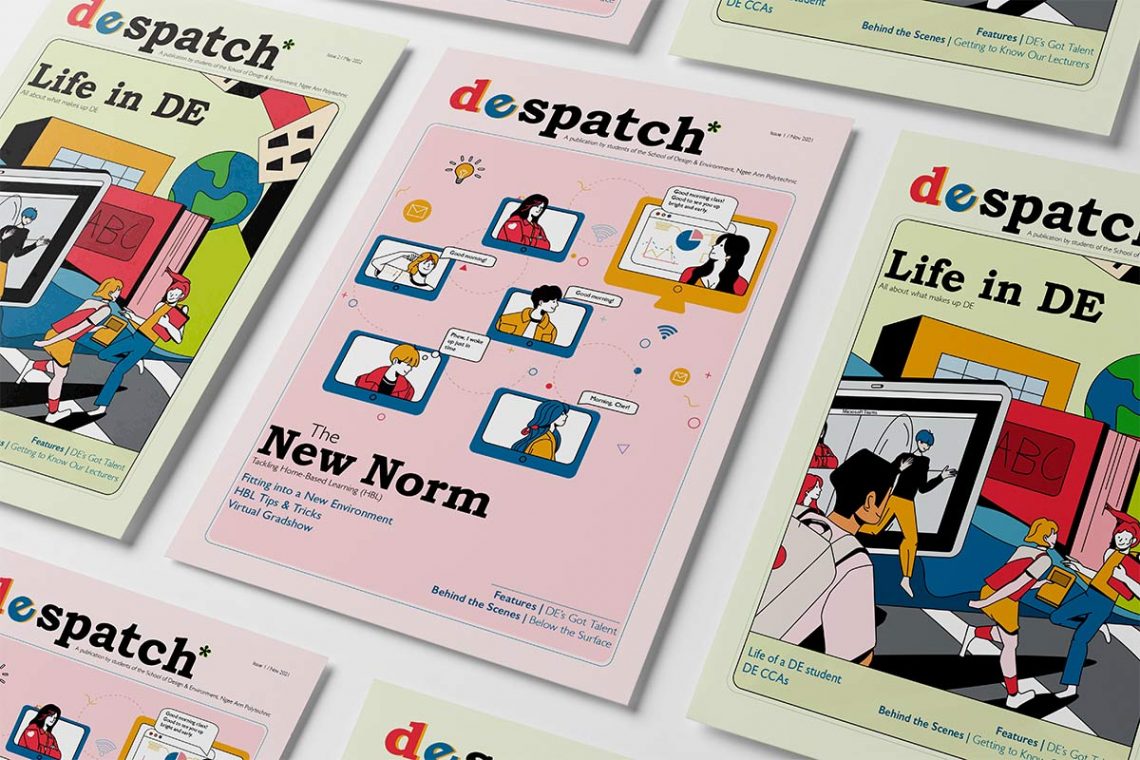
“The most memorable thing was hearing my classmates saying ‘Eh, release already, you should go and read!’ People were looking forward to it,” says Tay. “I realised through these projects that when you focus on the user experience, there is always something new to learn. You can also build empathy, understanding and create a warmer environment.”

Design is a tool for us to create platforms for people to connect through creative means.
— Alya Tay
Plugging into a new design network
The interest in bringing people together by design has led Tay to the University of the Arts London to pursue a Bachelor of Arts in user experience design. Her time in polytechnic fostered her interest with how human behaviour and psychology shapes the creation of user interfaces and experiences. She also experienced the wide-ranging role of the designer in the real world during various internships. At one tech start-up, for instance, Tay was involved in not just designing the look-and-feel of the company’s website, but also coding it with her engineering colleagues and working with the sales team to develop marketing campaigns and structure promotions.
“People think we just sit there and make cute little images, but designers carry so much weight in a company,” she says. “Through these experiences, I realise designers are small but mighty. We are very ‘transdisciplinary monsters’ who have the ability to work with everyone.”
When Tay first found her “dream course” to pursue for further studies, however, she realised it was financially out of reach. Fortunately, a mentor at a local bank where she was interning in had worked with recipients of the DesignSingapore (Dsg) Scholarship and urged her to apply. Tay was drawn to the financial support and the opportunity to be connected with a wide network of past scholars, many of whom are industry leaders today. Since moving to London, she has met fellow scholar Chew Jia Ying, who is pursuing her PhD on design in transdisciplinary higher education at the same university.
“We talked a bit about life in London and it’s very cool to hear about her projects and her journey as a PhD student when I’m just starting my own journey,” she says. “Once you are a Dsg scholar, you get introduced to this whole network of the best designers in Singapore.”
A lifelong design learner
Having just embarked on a new chapter in London, Tay is looking forward to work in the tech sector while keeping an eye out for other opportunities in the future. The experience of studying overseas has helped her realise that more can be done to make design education more accessible and attractive to the young in Singapore. Tay recalls how express stream students like her had no access to Design & Technology classes or the workshop because her school only offered the subject only to normal stream students who are more technically inclined. Today, many of her peers still do not regard the design profession as one worth aspiring to.
“It is a shame that at a young age we aren’t exposed to design in a more fun way. It could be applied to so many parts of our education system. In art class, instead of just drawing an apple or a pear, we could do projects that incorporated design thinking,” she says. “If everyone could have a bit of design education while growing up, it would help them be a bit more creative.”
The goal is not to train everyone to become a designer, Tay explains. Rather, she believes design education can equip students with skills such as critical thinking to help them think out of the box and discover more about themselves. She reveals how design taught her to be a less anxious person.
“Design made me stop and think and appreciate the process; and to stop focusing so hard on the outcome,” she says. “Now when I see a product, I can stop and admire how someone really put in so much effort and thought into designing it. It makes the world more colourful.”
While helping Tay appreciate “the little things”, design has also instilled in her the importance of continually growing as an individual. She likens the design process of prototyping and improving on feedback to being a lifelong learner, which is crucial in an ever-changing world.

The design process is a very long and iterative journey, and most times there is no perfect outcome. Sometimes there is no solution at all. But design always focuses on bettering, improving, and enhancing.
— Alya Tay
“Being better by design means honouring this principle of lifelong learning through design and to always look for opportunities to improve.”



